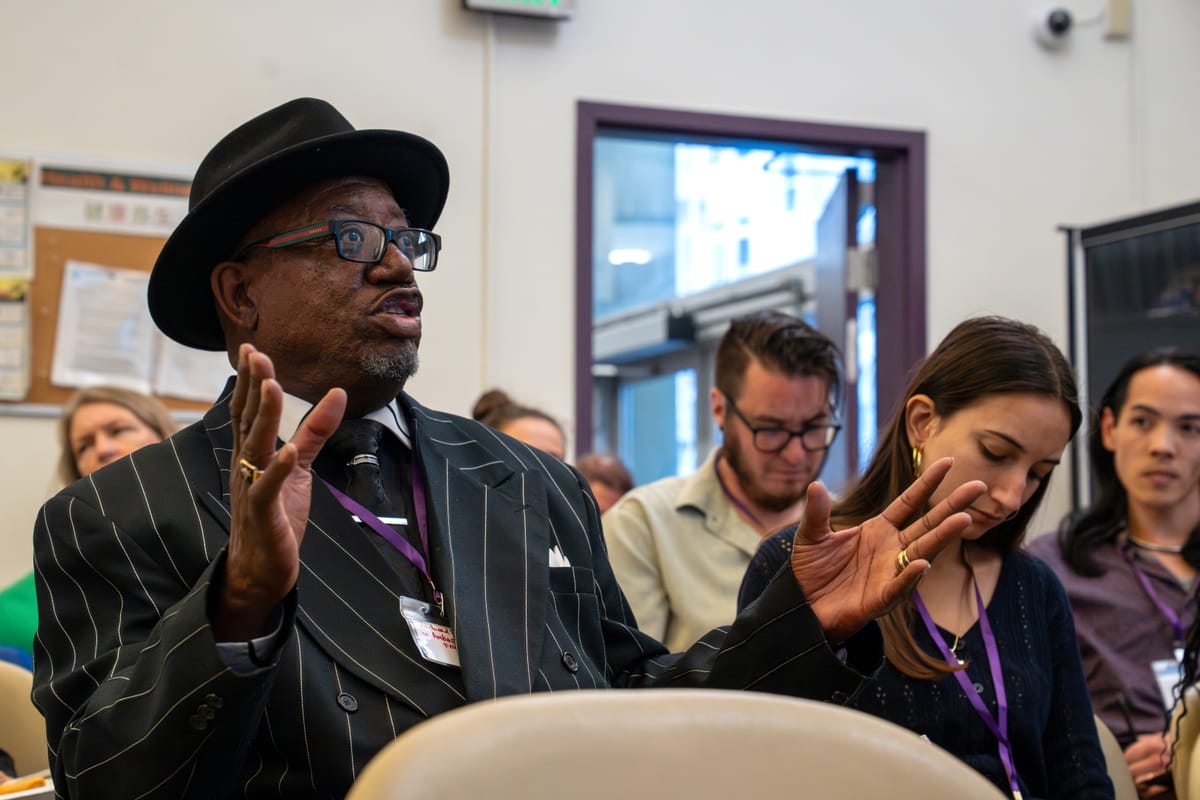The Tenderloin’s vision for community-serving media
We asked a group of stakeholders what they’d want from our newsroom. Here’s what they told us.

We met with a group of 40 Tenderloin community members last week and I have to tell you, the whole experience was an affirmation of one of our key beliefs: Communities know what they need.
At that listening session with local stakeholders, we asked how our forthcoming Tenderloin newsroom should serve them. The answer we got was that people who live and work here have stories to tell, and we should amplify them — rather than just do all the telling ourselves.
After about an hour and a half of discussion, News Relay Network walked away with a number of fairly straightforward directives:
- Become the megaphone this community doesn’t have right now. People here are quite well-informed. What they need is to be heard.
- Produce content that is both for the Tenderloin (to better connect people to one another) and for those outside the neighborhood (to present a clear, un-warped picture of this community).
- Do this work honestly and with humility. If we’re successful, then people will welcome us and want to participate.
There were also requests for particular kinds of information and content, which served as yet another demonstration of the Tenderloin’s heart and care.
Several people expressed concerns about those who are most exposed to trauma and grief: Who shows up for the street outreach workers after one of their colleagues is assaulted or killed? What can be done for community members who are grieving? How can we help people heal after another death, another violent incident? Someone suggested that our stories on violence and loss offer readers ways to help the victims directly.
We also heard that residents would like a community calendar, so that people know about and can attend events and important meetings by the various groups in the neighborhood. (This is a popular request, so it’s a top priority!)
When we solicited requests for initial coverage topics, the audience wanted to engage even more than we had anticipated. We’d shown up with a list of ideas to pursue, based on community conversations up to then, and figured that this group discussion would help grow that list. Instead, people asked that we conduct a survey. We like that idea, and in the next few weeks we’ll put together a story-topic survey and distribute it in the neighborhood. It probably won’t be a one-off; gathering ideas will be an iterative and ongoing process, like these listening sessions.
If I’m honest, this event didn’t go exactly as we expected. We learned some things that surprised us and are going to help us re-orient our publication plan to the Tenderloin's needs. We knew, going in, that this is a neighborhood full of knowledgeable and engaged people who have clear ideas for how to fix persistent social and political problems. We knew that there is a desire for solutions-oriented reporting and coverage of the important work that service providers and organizers do here, and disinterest in articles that just reiterate the problems that have persisted for decades.
But we thought we were going to come away with marching orders, for stories to write and how to frame them. Instead, the people who attended helped us re-imagine our whole approach to content production, urging us to lean into being collaborative and trusting the Tenderloin’s expertise.
I’m glad people set us straight.
This is a community that often experiences news media in a dis-empowering way. A megaphone is held up, but it’s pointed at the Tenderloin. We want to keep doing something fundamentally different: Giving them the megaphone.
If we continue down this path and show that we’re genuine — if we demonstrate the respect and cooperation we’ve been talking about — I’m confident the people we spoke with last week will help us grow stronger roots in this community.
We are really excited to take all of this to heart and deliver on our promises.
